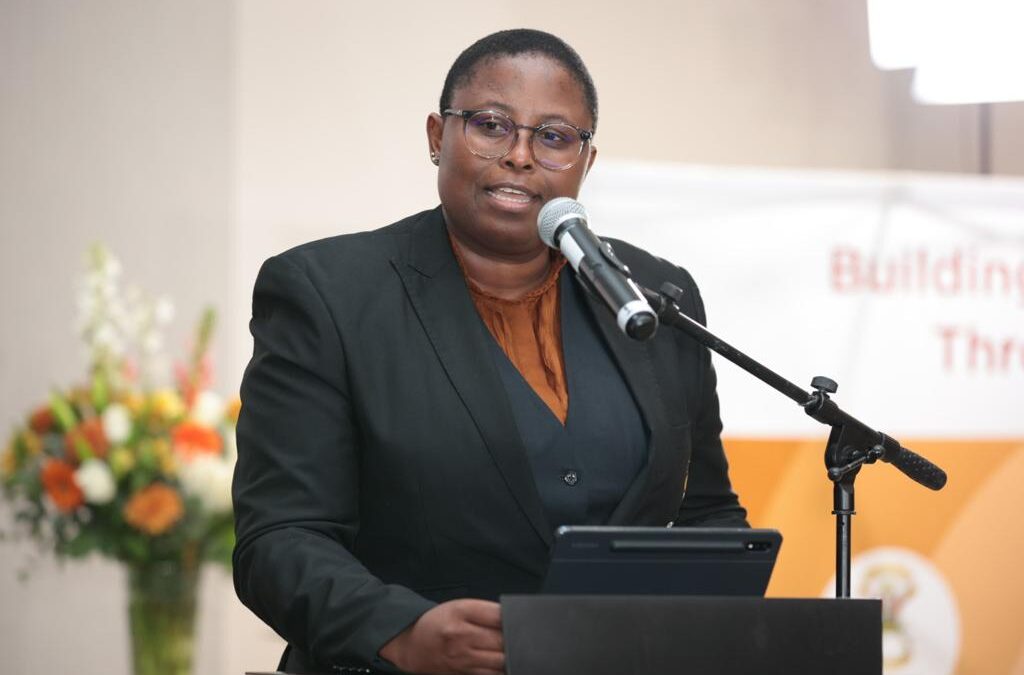The National Assembly Speaker, Ms Nosiviwe Mapisa Nqakula, has urged the South African Legislative Sector (SALS) to effectively use its legislative and oversight mandate to ensure meaningful and impactful progress on gender transformation in South Africa. She said the discussions over the few days highlighted the structural barriers that impede gender transformation and cemented the importance of collaboration with all relevant stakeholders. She called on the sector to go beyond the adopted recommendations of the summit by doing due diligence in determining the implementation capacity.
This was in conclusion of a three-day gender summit that took place in KwaZulu-Natal under the auspices of the Speakers’ Forum SA (comprising National Council of Provinces Chairperson, Speaker of the National Assembly and legislatures and their deputies). Delegates included Chairpersons of committees, Secretaries of Legislatures, relevant government departments, the Judiciary, Civil Society groups, and the Southern African Development Countries Parliaments attended the summit.
She appreciated the robust discussions that reiterated the need for planning, intentional policy-making, and deliberate and responsive oversight. She said the hosting of the gender summit was a critical component in forming part of the building blocks aimed at facilitating economic transformation for the benefit of women, reducing gender discrimination, promoting gender mainstreaming, and eradicating gender-based violence.
She said that given the various concerns raised about the capacity of the State to plan and execute for impact, she called on the sector to ‘step up’ and strengthen the legislative framework and ensure the monitoring of both planning and implementation to ensure the qualitative impact on gender transformation. She said this would be possible through a comprehensive analysis and scrutiny of the parliamentary oversight framework to ensure that gender considerations are integrated into legislative processes and decision-making.
The summit agreed to the following recommendations:
GENDER MAINSTREAMING
An intersectional lens is required to address gender mainstreaming for women, girls, LGBTIQ+ persons and gender non-binary persons. The legislative sector to implement transformational programmes for women, especially rural women and girls for economic transformation.
LEGISLATION AND PUBLIC POLICY
The legislature to engage in legislative reform that aims to address barriers that inhibit women’s participation.
BUDGETS
Legislatures must oversee the maximization of targeted financing to accelerate the achievement of gender-responsive planning, budgeting, monitoring and evaluation. The South African Legislative Sector ensures that the Auditor General audits the financial analysis of departmental votes using gender indicators.
OVERSIGHT OVER GOVERNMENT SERVICE DELIVERY
The summit committed to ensuring the utilization of gender-responsive oversight tools to monitor the development and implementation of strategies and plans to address issues related to equality and justice in South Africa. The development of an oversight plan by the Sector to guide oversight of the National Strategic Plan on Gender-based Violence and Femicide is required.
PUBLIC PARTICIPATION
The summit acknowledged that men and boys must be encouraged to take an active part in and to engage fully as agents and beneficiaries for change in the realization of women’s economic transformation and the eradication of gender-based violence. The importance of civil society organizations’ involvement was acknowledged as a critical component in ensuring the realization of gender rights and ensuring their participation in legislative and oversight processes.
INTERNAL PROCESSES OF LEGISLATURES
The Legislative Sector to develop a stakeholder engagement plan and partnership framework inclusive of all sectors at all levels, business and community-based organizations to advance gender mainstreaming in South Africa. Furthermore, the Legislatures encouraged to development of national action plans for oversight of the attainment of gender equality insofar as women’s economic transformation and oversight where gender-based violence is concerned.
WOMEN AND THE ECONOMY
The sector is to take lessons on the systematic transformation of the gender landscape from other sectors and state institutions to address the continued gender gaps in the labour force, participation, and leadership; wages and income; occupational segregation; social norms and workplace culture.
Having considered the recommendations, the Speaker encouraged the Sector to thoroughly engage and scrutinise in order to put in place mechanisms for the implementation. She said the sector has the responsibility and the power, on behalf of the electorate, to hold the government accountable for budget allocation and expenditure that supports gender mainstreaming and transformation indicators.
She emphasized the important role played by men in the struggle for gender transformation and equality. She encouraged men to be active participants in women’s transformation issues. She called on women to view the physical and emotional abuse of men and young boys and their role in it in a similar vein.
Lastly, she appreciated the strong recommendations made by the summit on the historical socio-economic issues that perpetuate gender inequality, including the current practical policies for land allocation and land use. She called for effective oversight to rectify inequality and ensure equal access to land for men and women.

